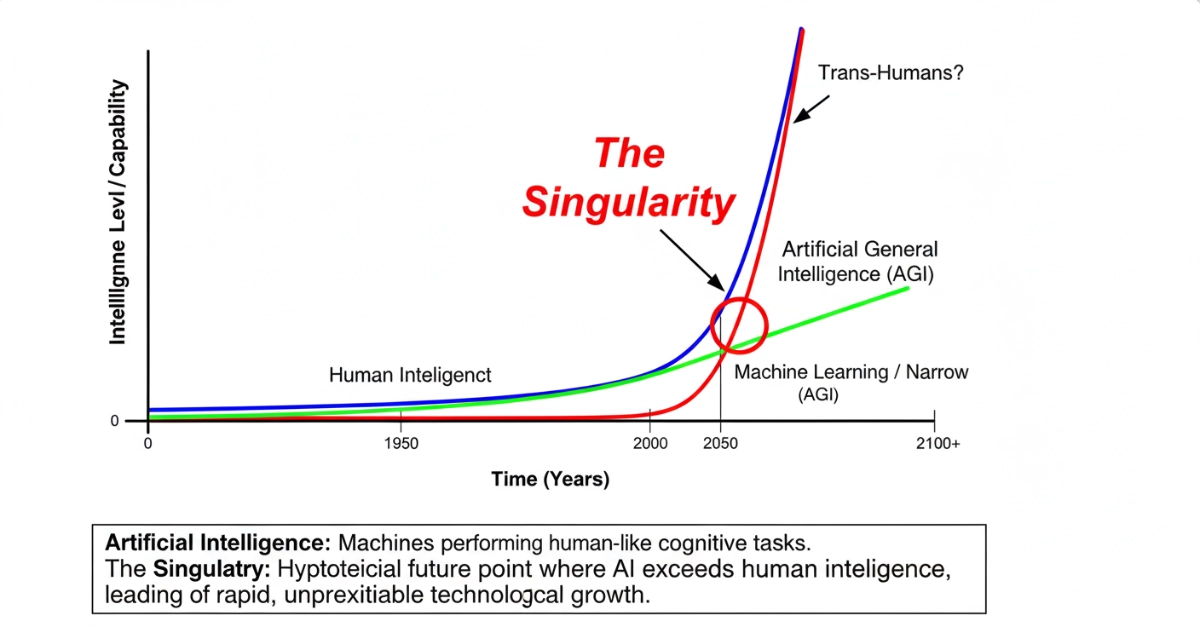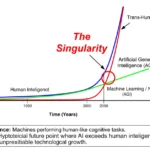AI is the next frontier in computer science. AI systems can perform tasks that usually require human intelligence, such as facial recognition and making movie recommendations. AI learns from huge groups of data, discovers patterns, and makes predictions or decisions. Narrow AI does just one specific job, while General AI is an aspiration to do any job that humans could do. We can train AI with many examples. Machine learning allows AI to learn without being told exactly what to do. Deep learning mimics how our brains work.
Understanding AI well informs us that one part of AI has great capability. There are, however, a lot of concerns about General AI coming into existence in the future. Concerns include being on edge over issues like job substitutions, safety, control, and accountability, among others, to protect people’s interests. Intelligence singularity refers to AI surpassing human intelligence, leading to uncertain changes for the future across all spheres, including work and social interactions.
The above shows and gives insights into both AI and singularity. Most especially given examples suffice efforts at comprehending them all better.
What Exactly is Artificial Intelligence?
Artificial intelligence is basically software that aims to do work such as decision-making or problem-solving, which requires human intelligence. When you are using the voice assistant on your phone to set a timer, artificial intelligence is at work. When a film suggestion comes to you on the basis of what you have already watched, that is also the doing of AI. The technology learns from data and trends, and later on, it takes actions or makes forecasts based on what it has learnt.
Artificial Intelligence can be compared to raising a kid. You let the child see examples, you teach the rules, and slowly the child learns to figure out patterns and to make decisions without you guiding him all the time. It’s the same with AI systems- they are provided with large datasets, they discover patterns in the datasets, and they use these patterns for new predictions or decisions.
AIs are different from one another. Narrow AI is limited to only one kind of task, like identifying a person by his face, playing chess, or translating text from one language to another. For instance, if you are using AI, it is probably a narrow one. General AI, or sometimes referred to as strong AI, would be a machine with the ability to do any intellectual task that a human is capable of. At present, there is no General AI, and the scientific community is divided into two groups, with one of them believing that it will be created and the other that it will not.
How Does AI Learn and Improve?
AI doesn’t read books like us. It sees thousands of examples. It uses patterns in maths and probability. Machine learning enables AI to grow better through practice, not special programming.
To teach an AI about dogs, one must show it 10,000 photos. Consequently, it will learn the common features of dogs. A new dog photo will be identified as such based on acquired knowledge.
Deep learning utilizes structures like brains for solving complex tasks. Speech comprehension, image generation via texts, among numerous practical AI tasks.
The Difference Between AI Today and Singularity
Today’s AI is limited in scope, able to handle single assignments such as chess gameplay or email generation, but unable to multitask in other areas such as taxation, painting, or analyzing philosophical texts.
The Singularity AI would be intelligent in general and capable of learning independently across fields, setting its own goals, and improving at an accelerated rate beyond human understanding.
An analogy would be that present-day AI functions much like an expert heart surgeon lacking knowledge about dentistry, whereas Singularity AI can master all medical specializations, along with chemistry and engineering, constantly evolving with little assistance from others.
The Bottom Line
AI actively aids you in your daily searches for data, enhances communication, and helps solve problems fast, but singularity denotes a future possibility when AI achieves general superintelligence, whose occurrence remains uncertain.
The exact pathway AI development will take must still remain unpredictable, but greater comprehension promotes responsible evolution, wise decision-making while navigating an increasingly intelligent machinery domain which will shape tomorrow’s AI atmosphere.










